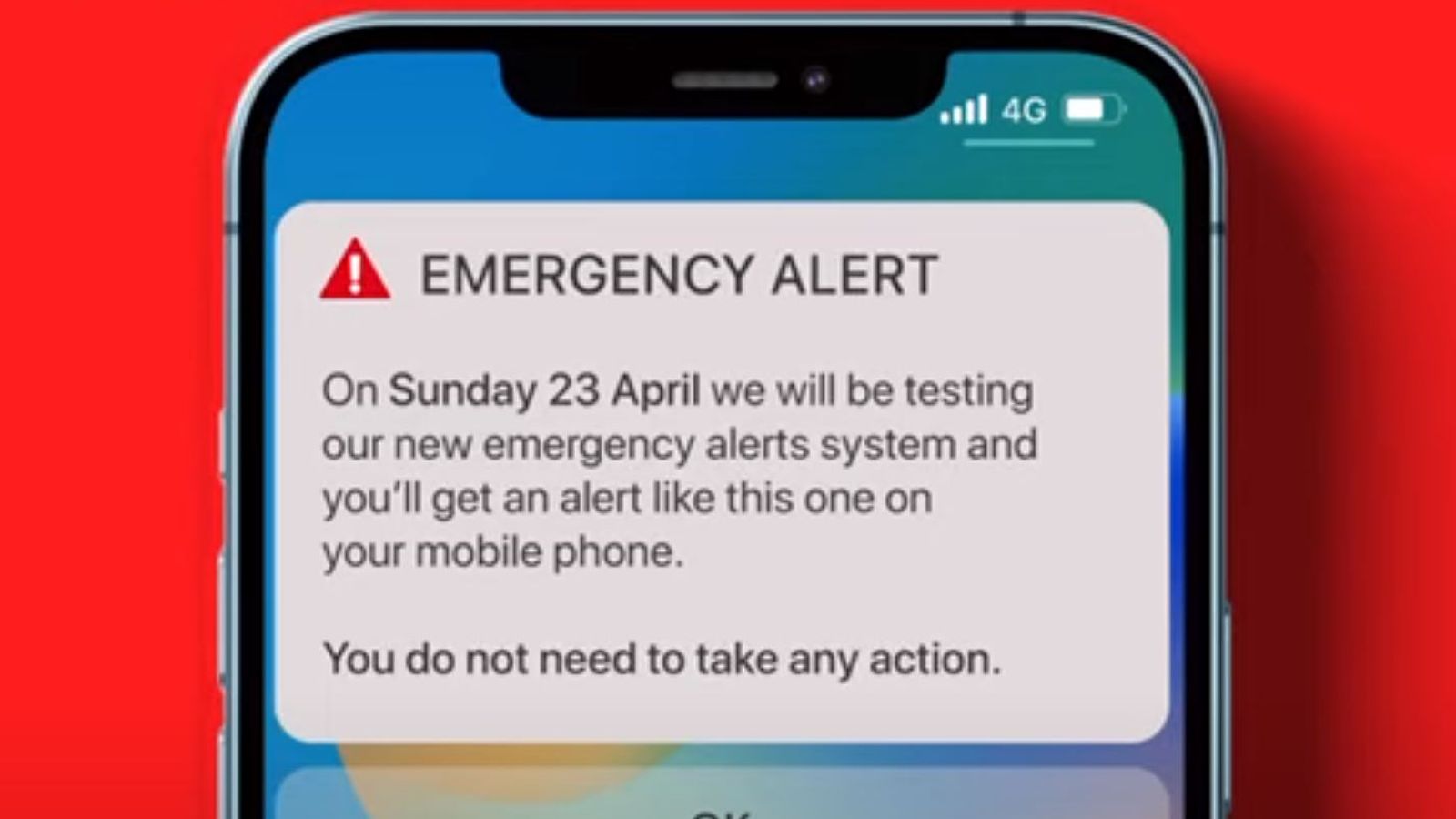A nationwide test of the UK’s emergency alert service will take place at 3pm on Sunday 23 April.
It will see messages pop up on mobile phones across the country, along with a sound and vibration that will stop automatically after 10 seconds.
People will just need to tap “OK” or swipe away the notification like any other, with no further action required.
It’s the first nationwide trial of the service, following pilots in East Suffolk and Reading.
The government said it would be used in “life-threatening emergencies”, including extreme weather events like the wildfires and flooding seen last year.
Similar services are already being used in countries like the US, Canada, and Japan.
Minister Oliver Dowden said the alert could one day “be the sound that saves your life”.
Test will coincide with sporting events
For the test later this month, the government has worked with emergency services and other partners, including the Football Association, to ensure it has minimal impact on major events.
It will coincide with some Premier League football matches and the London Marathon.
Mark Hardingham, chair of the National Fire Chiefs Council, said: “For 10 seconds, the national test may be inconvenient for some, but please forgive us for the intrusion.
“The next time you hear it – your life, and the life-saving actions of our emergency services, could depend on it.”
The government said the test was important as it would make sure people can recognise a real alert, which would provide clear instructions about how to respond in an emergency.
But they are expected to be sent very rarely, only when there is an immediate threat to life, so it may be months or years before you receive one.
Assistant chief constable Owen Weatherill, of the National Police Chiefs’ Council, said emergency services would “listen carefully to public feedback” from the test to ensure any future alerts have “a positive impact”.












